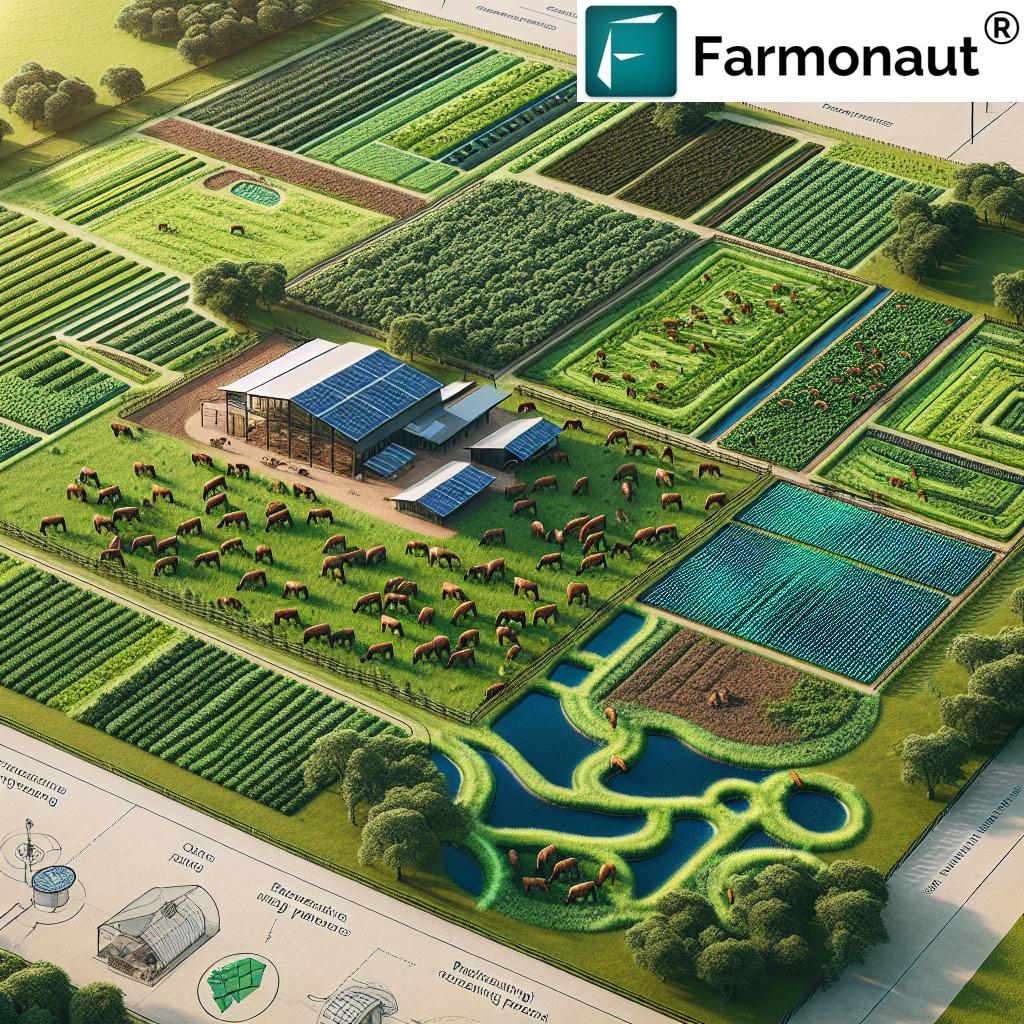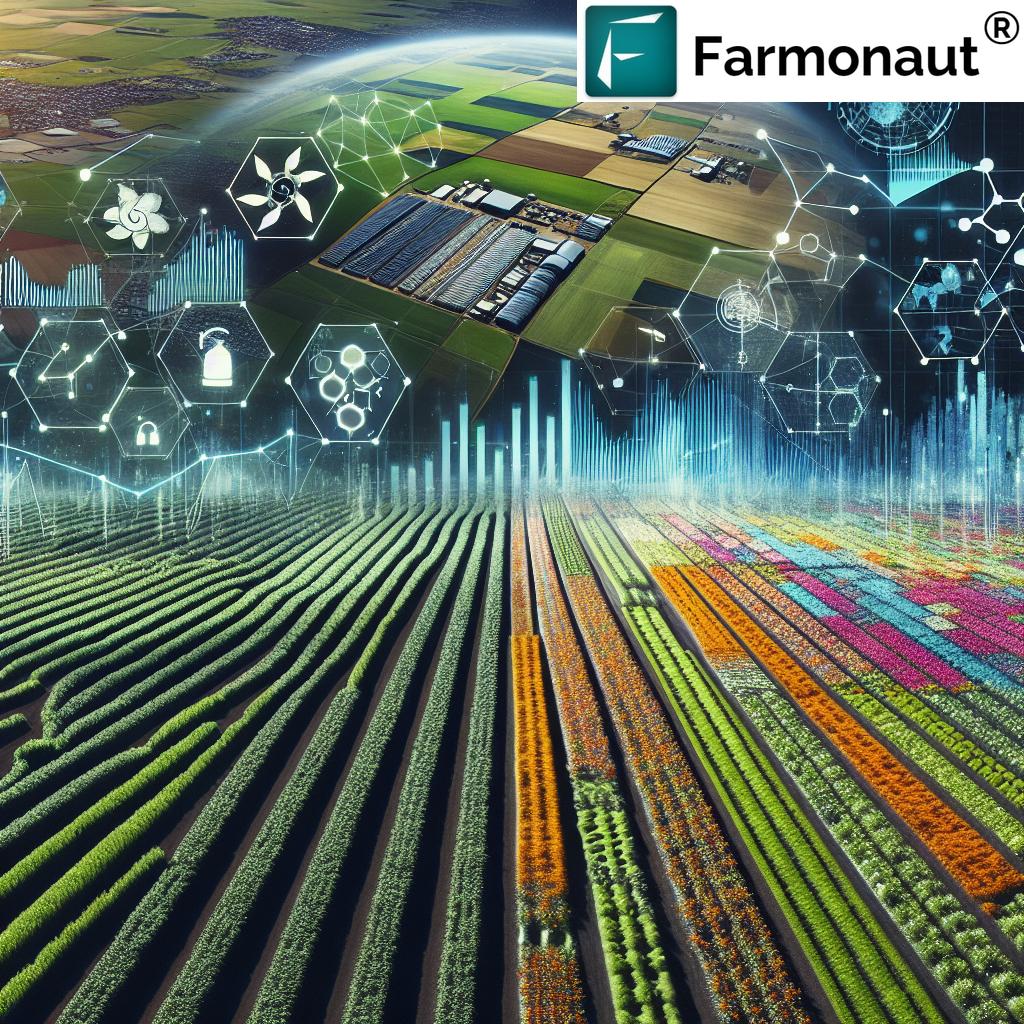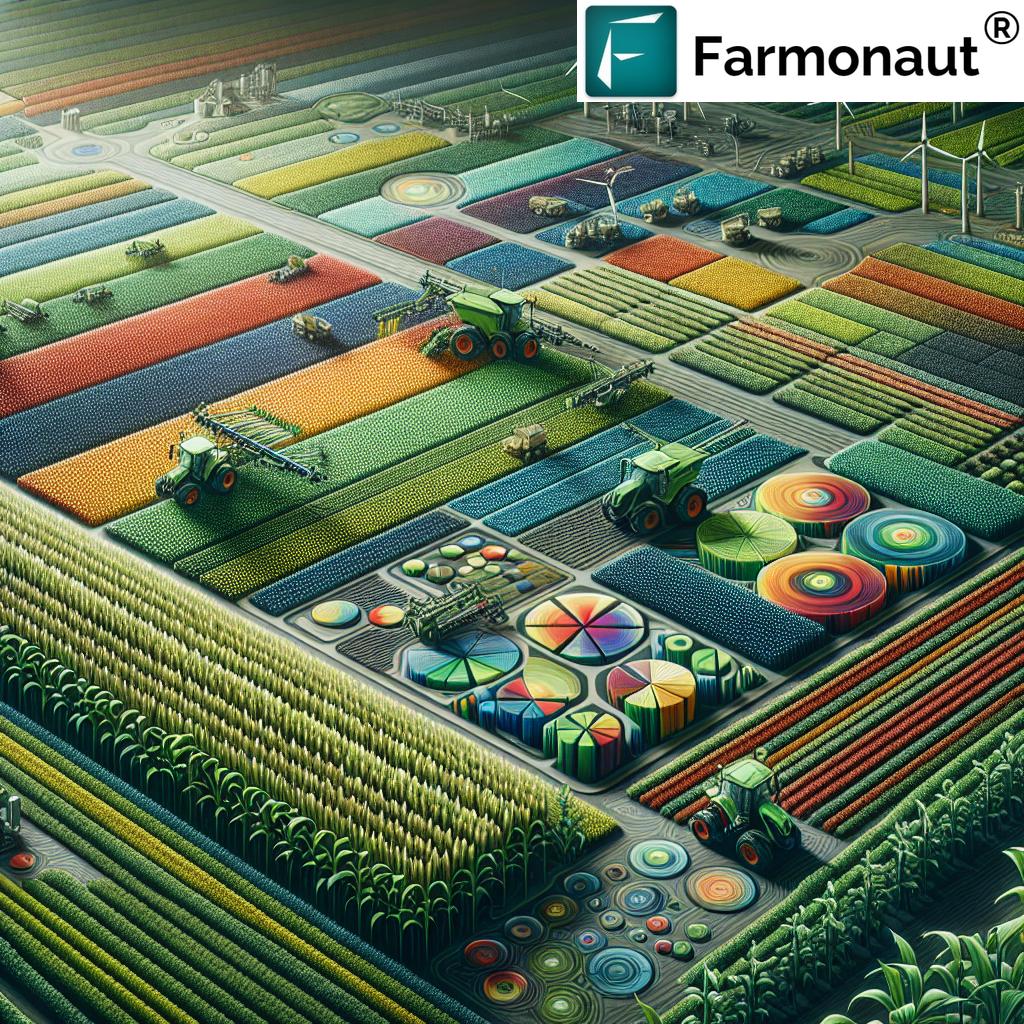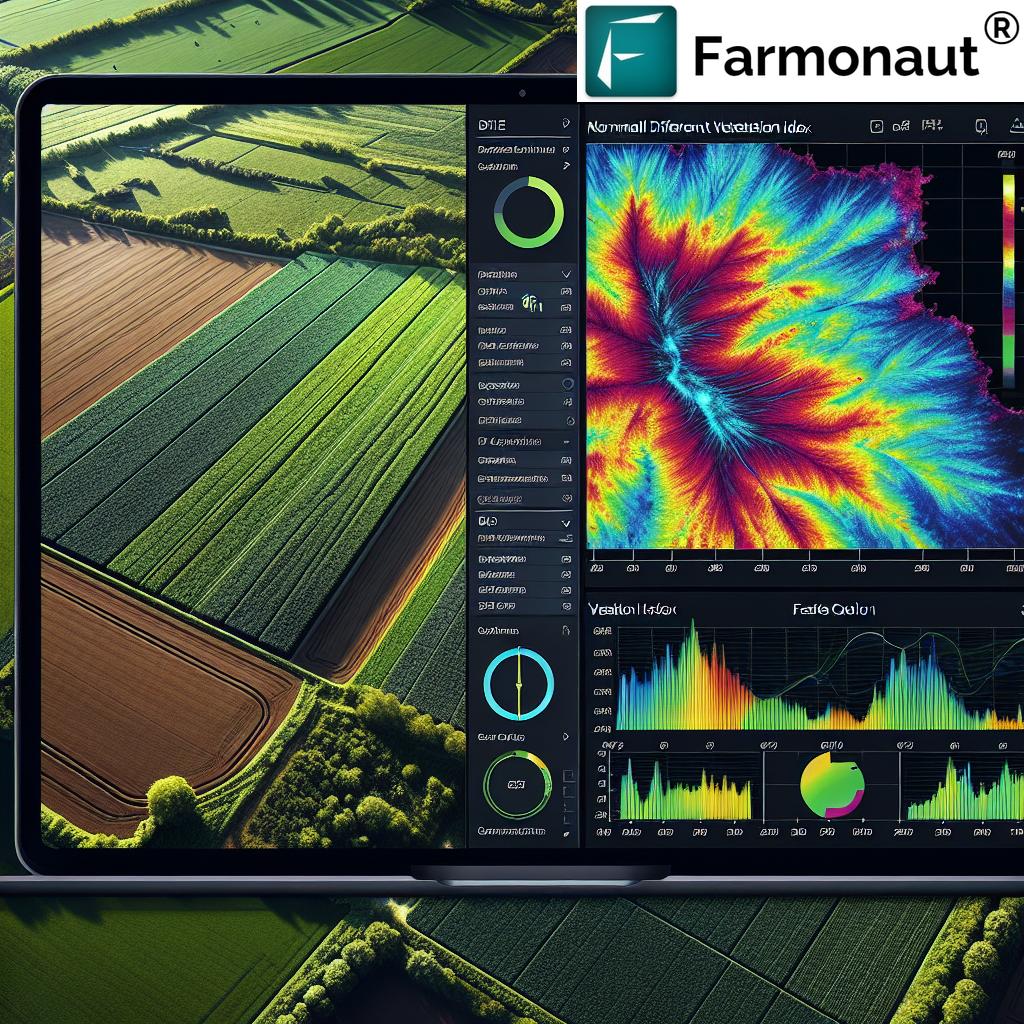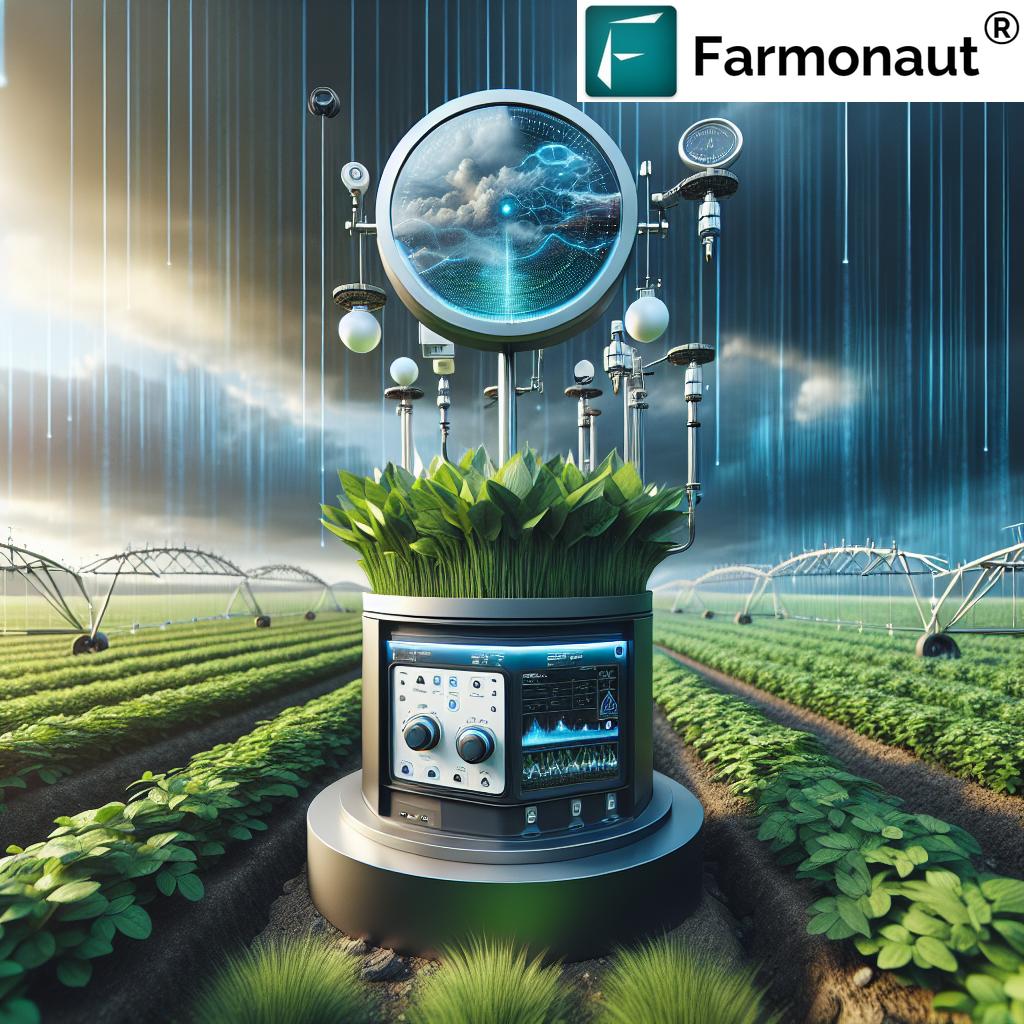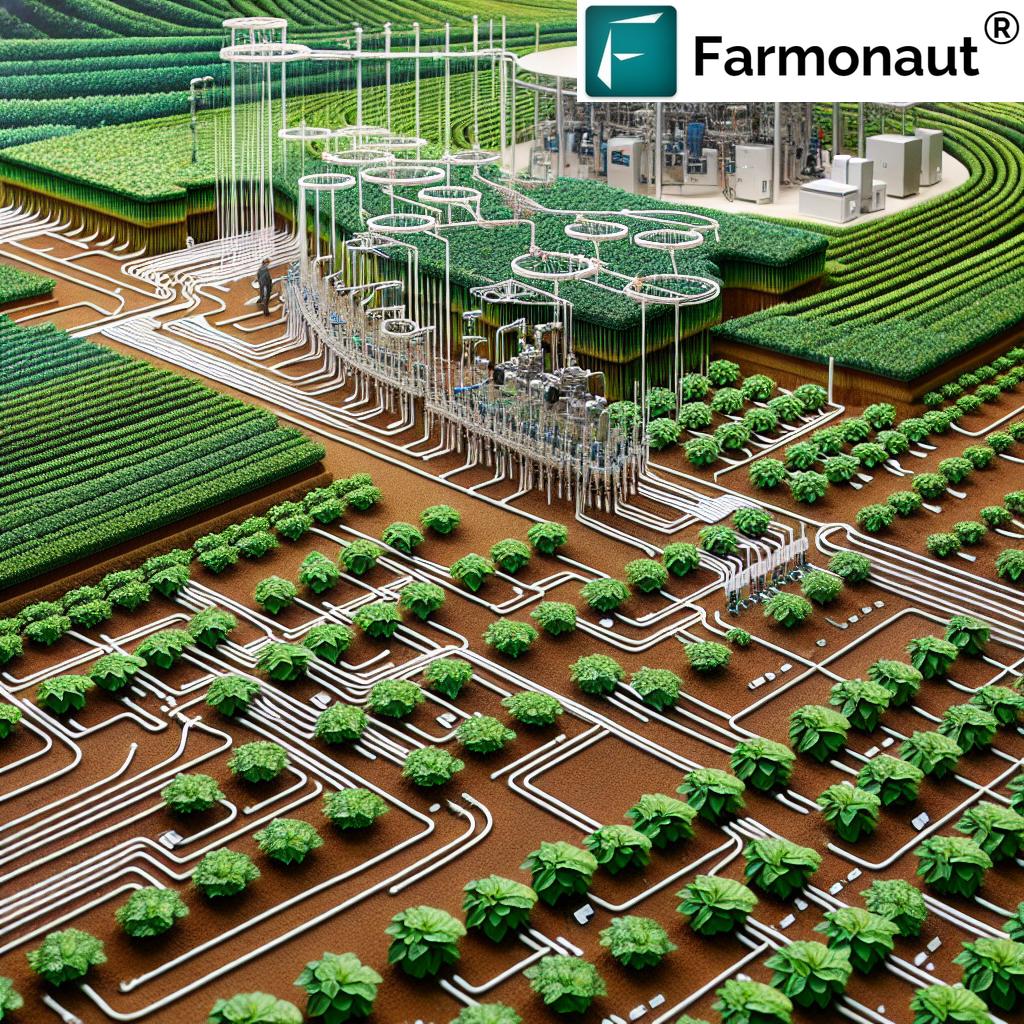Streamline Your Agricultural Compliance: Farmonaut’s Guide to Online Farm Permit Applications and Environmental Management
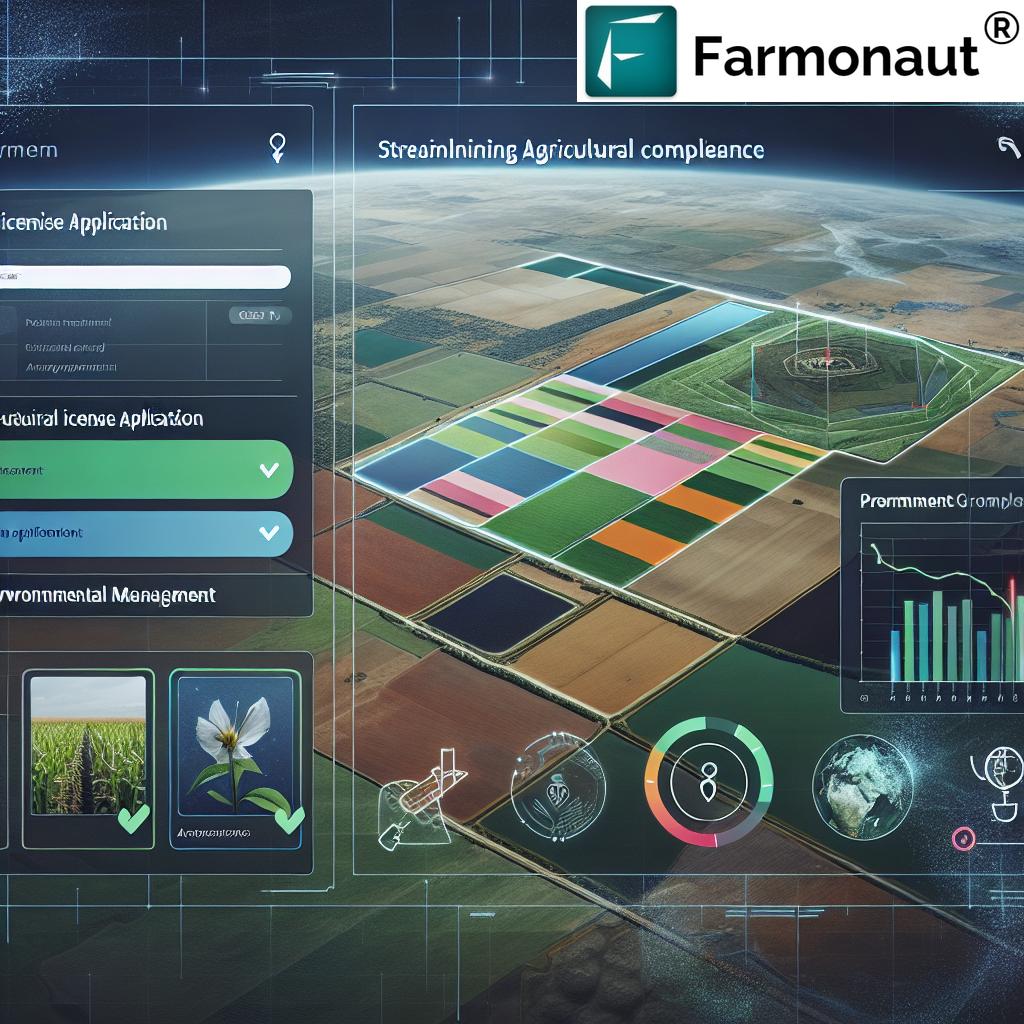
“90% of farmers report reduced paperwork time when using online farm permit applications for environmental compliance.”
In the ever-evolving landscape of modern agriculture, compliance with environmental regulations and obtaining the necessary permits have become crucial aspects of sustainable farming. As we navigate through the complexities of agricultural license applications and environmental management, Farmonaut stands at the forefront, offering innovative agritech compliance solutions to streamline these processes. Our comprehensive guide aims to demystify the online farm permit system, providing farmers and agribusinesses with the essential knowledge to ensure compliance with sustainable farming regulations while leveraging precision agriculture technology.
Understanding the Importance of Agricultural Compliance
Environmental management in agriculture is not just a regulatory requirement; it’s a fundamental aspect of responsible farming that ensures the long-term sustainability of our agricultural practices. By adhering to environmental standards and obtaining the necessary permits, we contribute to:
- Protecting natural resources and ecosystems
- Ensuring food safety and quality
- Maintaining soil health and biodiversity
- Reducing the agricultural sector’s environmental footprint
- Promoting sustainable water management
At Farmonaut, we recognize the challenges farmers face in navigating the complex world of agricultural compliance. That’s why we’ve developed our platform to not only assist in crop monitoring and management but also to provide valuable insights for meeting environmental standards.
The Online Farm Permit System: A Gateway to Efficient Compliance
The transition to online farm permit applications has revolutionized the way farmers interact with regulatory agencies. This digital transformation offers numerous benefits:
- Reduced processing times
- Increased transparency in the application process
- Easy access to application status updates
- Reduced paperwork and administrative burden
- Improved accuracy in data submission
Our guide will walk you through the essential steps of utilizing these online systems effectively, ensuring that you can navigate the process with confidence and ease.
Key Components of Agricultural Environmental Impact Assessments
An integral part of obtaining many agricultural permits is conducting an environmental impact assessment. These assessments typically cover:
- Water usage and management plans
- Soil conservation strategies
- Waste management protocols
- Biodiversity preservation measures
- Air quality control methods
Farmonaut’s satellite-based monitoring and AI-driven insights can provide valuable data to support these assessments, helping farmers make informed decisions that align with environmental standards.
Navigating Water Management Permits in Agriculture
Water is a precious resource in agriculture, and its management is heavily regulated. Obtaining the necessary permits for agricultural water management is crucial. Key aspects include:
- Irrigation water rights and allocations
- Groundwater extraction permits
- Effluent discharge licenses
- Wetland protection compliance
Farmonaut’s precision agriculture technology plays a vital role in optimizing water usage, helping farmers meet regulatory requirements while maximizing efficiency.
Crop Protection Regulations: Balancing Productivity and Environmental Safety
The use of crop protection products is essential for maintaining agricultural productivity, but it’s also an area of significant environmental concern. Compliance in this area typically involves:
- Pesticide application licenses
- Integrated Pest Management (IPM) plans
- Chemical storage and handling permits
- Record-keeping requirements for pesticide use
Our platform’s real-time crop health monitoring can help reduce the need for excessive pesticide use, supporting compliance with these regulations while promoting sustainable farming practices.
Farm Waste Management Licensing: Turning Challenges into Opportunities
Proper management of agricultural waste is not only a regulatory requirement but also an opportunity for sustainable resource utilization. Key aspects of farm waste management licensing include:
- Solid waste disposal permits
- Composting facility licenses
- Biogas production approvals
- Hazardous waste handling certifications
Farmonaut’s tools can assist in tracking and managing farm resources, potentially reducing waste and supporting compliance with these regulations.
“Precision agriculture technology can help farmers achieve up to 30% reduction in water usage while maintaining crop yields.”
The Registration Process: A Step-by-Step Guide
Navigating the registration process for agricultural permits can be daunting. Here’s a general outline of the steps involved:
- Create an Account: Start by registering on the relevant agency’s online portal.
- Determine Permit Requirements: Identify the specific permits needed for your agricultural operations.
- Gather Necessary Documentation: Collect all required documents, which may include land ownership proof, farm plans, and environmental assessments.
- Complete the Application Form: Fill out the online application, ensuring all information is accurate and complete.
- Submit Supporting Documents: Upload all required documentation through the portal.
- Pay Application Fees: Process the necessary payments for your permit applications.
- Track Application Status: Use the portal to monitor the progress of your application.
- Respond to Queries: Be prepared to provide additional information if requested by the agency.
- Receive Approval: Once approved, download and store your digital permits securely.
Remember, the specific steps may vary depending on your location and the type of permits you’re applying for.
Essential Documentation for Agricultural Permit Applications
Preparing the right documentation is crucial for a smooth application process. Common documents required include:
- Proof of land ownership or lease agreements
- Detailed farm management plans
- Environmental impact assessments
- Water management strategies
- Waste disposal plans
- Chemical usage records and storage plans
- Soil and water quality test results
- Topographic maps and site plans
Farmonaut’s comprehensive farm management platform can help you organize and maintain many of these crucial documents, streamlining your application process.
Explore Farmonaut’s API for advanced agricultural data integration
Navigating Thematic Areas of Agricultural Licensing
Agricultural licensing often encompasses several thematic areas, each with its own set of regulations and requirements. Understanding these areas is crucial for comprehensive compliance:
1. Soil Conservation
Permits in this area focus on preventing soil erosion and maintaining soil health. They may include:
- Erosion control plans
- Terracing approvals
- Cover crop incentives
2. Air Quality Management
These permits address emissions from agricultural activities, including:
- Dust control measures
- Burn permits for agricultural waste
- Emissions from livestock operations
3. Biodiversity and Ecosystem Protection
Licenses in this category ensure that farming practices don’t adversely affect local ecosystems:
- Wildlife corridor maintenance
- Endangered species protection plans
- Habitat conservation agreements
4. Water Resource Management
As mentioned earlier, this crucial area includes:
- Water rights and allocations
- Irrigation system approvals
- Runoff management plans
5. Hazardous Substances Handling
These permits cover the use and storage of potentially harmful materials:
- Pesticide applicator licenses
- Chemical storage facility approvals
- Fuel tank registrations
Farmonaut’s precision agriculture tools can provide valuable data and insights across these thematic areas, supporting your compliance efforts and promoting sustainable farming practices.
Access Farmonaut’s API Developer Docs for custom integration solutions
Leveraging Technology for Environmental Compliance
In the digital age, technology plays a pivotal role in achieving and maintaining environmental compliance in agriculture. Farmonaut’s suite of tools exemplifies how technology can streamline this process:
- Satellite-Based Monitoring: Our satellite imagery provides real-time data on crop health, soil moisture, and land use changes, supporting environmental impact assessments and compliance monitoring.
- AI-Driven Insights: Our Jeevn AI system analyzes farm data to provide actionable insights, helping farmers make environmentally sound decisions that align with regulatory requirements.
- Precision Resource Management: By optimizing resource use, our tools help farmers meet conservation targets and comply with water and soil management regulations.
- Digital Record-Keeping: Our platform facilitates easy maintenance of digital records, crucial for compliance documentation and reporting.
By integrating these technological solutions into your farming practices, you can significantly simplify the process of maintaining environmental compliance.
Staying Updated: Monitoring Your Application Status
Once you’ve submitted your permit applications, it’s crucial to stay informed about their progress. Most online farm permit systems offer features to help you track your applications:
- Status Updates: Regularly check the portal for any changes in your application status.
- Notification Systems: Enable email or SMS notifications to receive real-time updates.
- Communication Channels: Use the portal’s messaging system to communicate with agency representatives if clarifications are needed.
- Document Requests: Be prepared to submit additional documents promptly if requested.
Staying proactive in monitoring your application can help expedite the process and ensure all requirements are met in a timely manner.
Handling Specific Requirements for Environmental Licenses
Different types of agricultural operations may require specific environmental licenses. Here are some key areas to consider:
Wetlands Management
If your farm includes or is near wetlands, you may need special permits for:
- Drainage activities
- Wetland restoration projects
- Buffer zone maintenance
Solid Waste Management
Proper handling of agricultural waste often requires specific licenses for:
- On-site composting facilities
- Waste storage areas
- Recycling programs for agricultural plastics
Ecosystems Protection
Farms in ecologically sensitive areas may need permits related to:
- Wildlife corridor preservation
- Native vegetation conservation
- Invasive species management
Farmonaut’s satellite monitoring and AI analysis can provide valuable data to support these specialized license applications, helping you demonstrate your commitment to environmental stewardship.
Navigating Challenges in the Application Process
While online farm permit systems have significantly streamlined the application process, challenges can still arise. Here are some common issues and how to address them:
- Technical Difficulties: If you encounter problems with the online portal, contact the agency’s technical support team promptly.
- Complex Requirements: For permits with intricate requirements, consider seeking assistance from agricultural consultants or legal experts specializing in environmental compliance.
- Delays in Processing: If your application seems to be taking longer than expected, use the portal’s communication tools to inquire about its status politely.
- Additional Information Requests: Be prepared to provide supplementary information quickly to avoid delays in your application.
Remember, patience and thorough preparation are key to navigating these challenges successfully.
Best Practices for Maintaining Compliance
Obtaining your permits is just the first step. Maintaining compliance is an ongoing process. Here are some best practices to ensure continuous compliance:
- Regular Audits: Conduct internal audits of your farming practices to ensure ongoing compliance with permit conditions.
- Continuous Monitoring: Utilize Farmonaut’s satellite monitoring tools to keep track of environmental indicators on your farm.
- Staff Training: Ensure all farm staff are trained on compliance requirements and best practices.
- Record Keeping: Maintain detailed records of all activities related to environmental management and permit conditions.
- Stay Informed: Keep up-to-date with changes in environmental regulations that may affect your permits.
- Proactive Communication: Maintain open lines of communication with regulatory agencies and seek clarification when needed.
By implementing these practices, you can ensure that your farm remains compliant and environmentally responsible.
The Role of Precision Agriculture in Environmental Compliance
Precision agriculture technology, like that offered by Farmonaut, plays a crucial role in helping farmers meet and exceed environmental compliance standards. Here’s how:
- Optimized Resource Use: By providing detailed insights into soil conditions and crop health, precision agriculture helps farmers use water, fertilizers, and pesticides more efficiently, reducing environmental impact.
- Data-Driven Decision Making: Real-time data and AI-powered analytics support informed decision-making, helping farmers align their practices with environmental regulations.
- Accurate Reporting: Precision agriculture tools provide detailed, accurate data for environmental impact assessments and compliance reporting.
- Proactive Environmental Management: Early detection of potential issues allows farmers to take corrective actions before they become compliance problems.
By leveraging these technologies, farmers can not only meet regulatory requirements but also position themselves as leaders in sustainable agriculture.
Agricultural Permit Application Checklist
| Permit Type | Required Documents | Submission Method | Estimated Processing Time |
|---|---|---|---|
| Water Management |
|
Online | 4-6 weeks |
| Crop Protection |
|
Online/In-person | 3-5 weeks |
| Hazardous Substances Handling |
|
Online | 6-8 weeks |
| Solid Waste Management |
|
Online/In-person | 5-7 weeks |
Frequently Asked Questions
Q: How long does the typical agricultural permit application process take?
A: The processing time varies depending on the type of permit and the complexity of your operation. Generally, it can range from 3 to 8 weeks. Using online systems and ensuring all documentation is complete can help expedite the process.
Q: Can Farmonaut’s technology help in preparing environmental impact assessments?
A: Yes, Farmonaut’s satellite monitoring and AI-driven analytics can provide valuable data on crop health, soil conditions, and land use changes, which are crucial components of environmental impact assessments.
Q: What should I do if my permit application is rejected?
A: If your application is rejected, carefully review the reasons provided. Address any issues or missing information and resubmit your application. If you’re unsure about the requirements, contact the relevant agency for clarification.
Q: How often do I need to renew my agricultural environmental permits?
A: Renewal frequencies vary by permit type and jurisdiction. Some permits may require annual renewal, while others might be valid for several years. Always check the expiration dates on your permits and start the renewal process well in advance.
Q: Can small-scale farmers benefit from Farmonaut’s compliance solutions?
A: Absolutely. Farmonaut’s solutions are scalable and can be tailored to farms of all sizes. Our tools can help small-scale farmers optimize their operations, ensure compliance, and potentially reduce costs associated with resource management.
Conclusion: Embracing Sustainable Agriculture Through Compliance
Navigating the world of agricultural compliance and environmental management can be complex, but it’s an essential aspect of modern, sustainable farming. By leveraging online farm permit systems and innovative agritech solutions like those offered by Farmonaut, farmers can streamline their compliance processes, reduce environmental impact, and position themselves for long-term success.
Remember, compliance is not just about meeting regulatory requirements; it’s about embracing practices that ensure the longevity and sustainability of our agricultural systems. By staying informed, utilizing technology, and maintaining proactive environmental management strategies, we can all contribute to a more sustainable and productive agricultural sector.
At Farmonaut, we’re committed to supporting farmers in this journey towards efficient, compliant, and sustainable agriculture. Our platform offers the tools and insights you need to navigate the complexities of environmental regulations while optimizing your farming operations.
Start your journey towards streamlined agricultural compliance today. Explore Farmonaut’s solutions and take the first step towards a more sustainable and efficient farming future.





